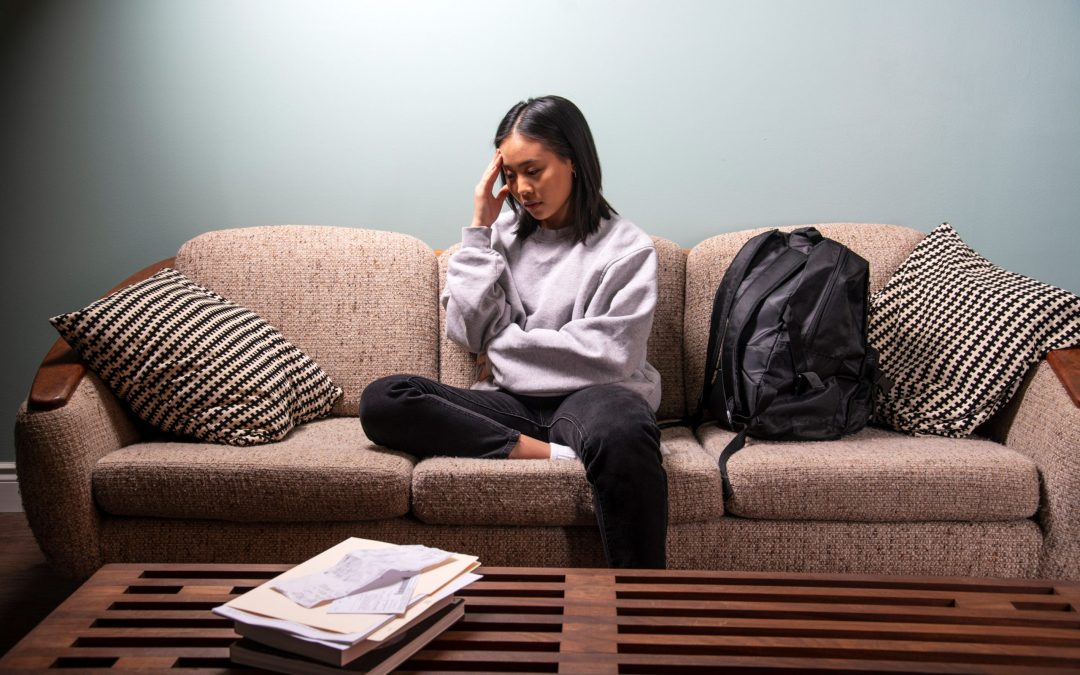What is the difference between stress and anxiety?
The words stress and anxiety are often used interchangeably. In this article we look at the main differences and why it is vital to know whether you are stressed or have an anxiety disorder

Sponsored article
Both stress and anxiety share some common symptoms and it is very natural to experience these at times. That gnawing sensation in your stomach, sweaty palms and restless energy are symptoms that are experienced with both stress and anxiety. Some of these are caused as a side effect of the adrenaline that is released when we are faced with a threat – either perceived or real. Whilst there are some similarities between stress and anxiety, there are also some key differences.
What is stress?
Stress is a response to a threat or a situation – it is the initial reaction our bodies go through when we are faced with something. People with stress are often aware that if they could get on top of their stressors their levels of stress would drop and on the whole, this can be true IF there are only a few stressors involved.
However, the ‘drip, drip’ effect of lots of seemingly small stressors can begin to snowball, resulting in chronic stress. Individuals can start to develop internal stressors, such as low self-esteem or low confidence that they are able to make changes in their life and if not dealt with, the sources of stress can become pervasive and much harder to treat.
Stress is not a diagnosable condition under the DSM-V (the handbook Psychiatrists use when diagnosing mental health conditions), however, that does not mean to say it cannot be hugely detrimental to an individual’s life.
What is anxiety?
Anxiety is a set of feelings we have when there are no obvious presenting stressors – often we don’t know why we are feeling anxious but our bodies experiencing many side effects, such as a racing heart, feeling jittery and unable to focus and even having panic attacks.
Anxiety is often characterised by excessive fear and worry about what might happen and is can be very confusing and frustrating for the individual as there is often no specific cause they can pinpoint.
Unlike stress, there are several diagnosable types of anxiety, including:
- OCD
- Phobias
- Generalised Anxiety Disorder
- Social Anxiety
- Performance Anxiety
- Post Traumatic Stress Disorder
- Panic disorders
Should we distinguish between the stress and anxiety?
The most important reason for knowing if you are stressed or anxious is because it will help you find the most effective treatment option.
Stress can often be dealt with through changes to your lifestyle. You may begin to feel much better once that project at work is completed or you have had a break from the ‘daily grind’. Anxiety is very rarely managed with just lifestyle changes – treatment options can include medication and therapy.
Anxiety disorders are some of the most commonly experienced mental health disorders in the UK – one in 10 of us will experience a mental health problem at some stage and one in six of us will struggle with an anxiety disorder at any one time.
Left untreated, anxiety disorders can become debilitating, often those with an anxiety disorder will say it is ‘crippling’. They can affect the individual’s life in such a way that they are unable to carry out activities they once enjoyed or go to work. Depression is a common comorbidity for those with an anxiety disorder, which can make finding the right treatment option harder.
That said, it’s also important to deal with stress when you are experiencing it as it can begin to snowball into chronic stress, which leaves you more susceptible to develop an anxiety disorder or depression.
Treatment recommendations for stress include psychotherapy and psychology as well as lifestyle changes such as reducing alcohol intake and exercising more.
If you are not sure whether you are stressed or anxious or if you would like to talk to someone about the treatment options available, call 0203 326 9160 to talk to one of the Clinical Partners triage team. You can read more about Anxiety, symptoms and treatment here.
If you would like to book your first psychological therapy session, call Clinical Partners’ knowledgeable triage team on 02033269160.
Clinical Partners is the UK’s largest private mental health partnership, with over 21 locations nationwide. We help children, adults and families access the mental health care they need.
Image: Getty/iStock










